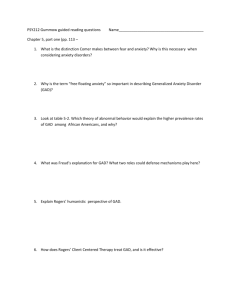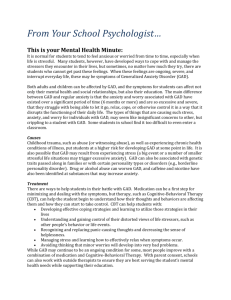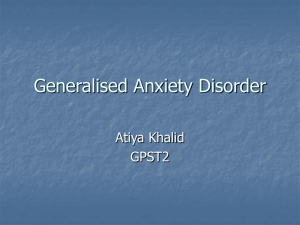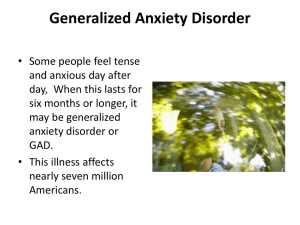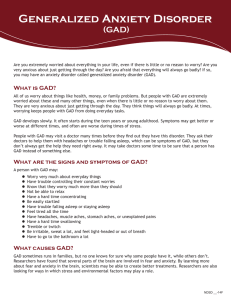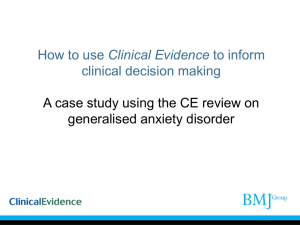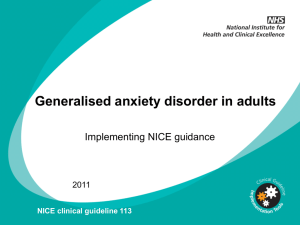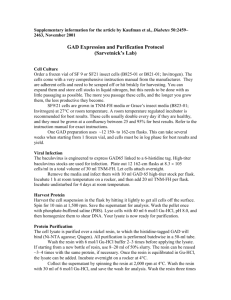(GAD) - SMW Central
advertisement
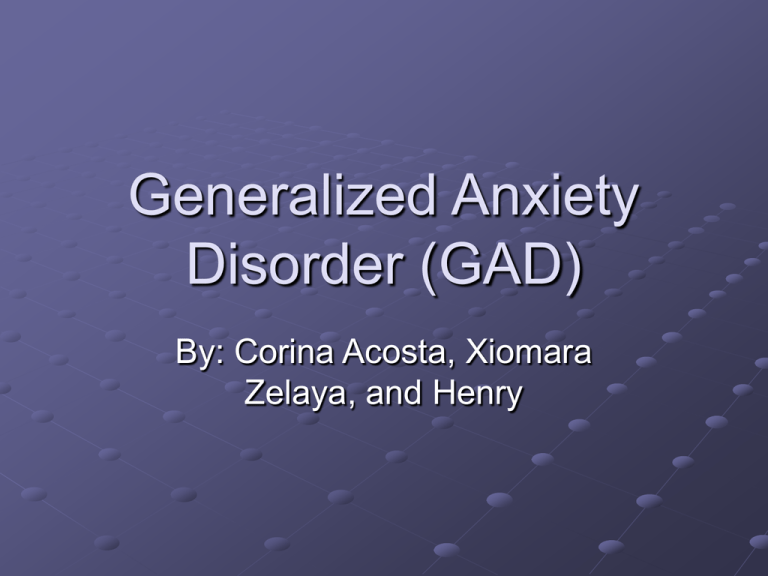
Generalized Anxiety Disorder (GAD) By: Corina Acosta, Xiomara Zelaya, and Henry What is GAD? Generalized Anxiety Disorder involves anxiety and worry that is excessive and unrelenting. This high-level anxiety makes normal life difficult and relaxation impossible. Rates of GAD According to DSM-IV, approximately 3% of people will develop the disorder during a given year, and 5% of people will have GAD at some point of their lives. GAD is said to affect a larger number of women than men; the ratio being 2:1. German study found that 6.6% of women and 3.6% of men will develop GAD along their lifespan. Research also found that GAD may affect people at different rates based on their age. Although research on GAD and the elderly is not complete, 17% of elderly men and 21.5% of elderly women experience severe anxiety. The lowest prevalence rates are for people between the ages of 15-24. Overall, GAD can affect people of all ages and although people experience symptoms at a very early age, it can fully develop at any point during the lifespan. Signs and Symptoms of GAD Not everyone with GAD have the same symptoms, but most people with GAD experience a combination of a number of the following physical and psychological symptoms: Physical Symptoms: muscle tension, aches, soreness, trouble falling/staying asleep, stomach problems, nausea, unsteadiness, and restless. Psychological Symptoms: irritability, inability to control anxious thoughts, inability to relax, difficulty concentrating, fear of losing control or being rejected. Children and GAD: in children excessive worrying is mainly focuses on future events, past behaviors, and school performances. Unlike adults with GAD, children and teens with GAD often don’t realize that their anxiety is disproportionate. Causes Chemical Explanation Treatment/Therapy Living With GAD GAD produces exaggerated worry about everyday things. Individuals with GAD experience unrealistic concerns over issues of family, work, health, and money, far beyond what an average person feels. People with Generalized Anxiety Disorder almost report poor quality of life and much of this has to do with their tendency to live “in the future” In general, people with anxiety can lead to violence but in most cases, people with GAD tend to feel more helpless and depressed. How GAD Impacts Relationships and Families. In general, the whole family suffers when an individual suffers from anxiety. Relationships between parents and children, siblings, spouses and extended family members become strained. Communication becomes a challenge due to the symptoms. Family members may withdrawal from eachother. Resources Available to People With GAD Most insurance plans cover treatments for anxiety disorder. For people who don’t have insurance, local city or county governments may offer treatment at a clinic or health center.
